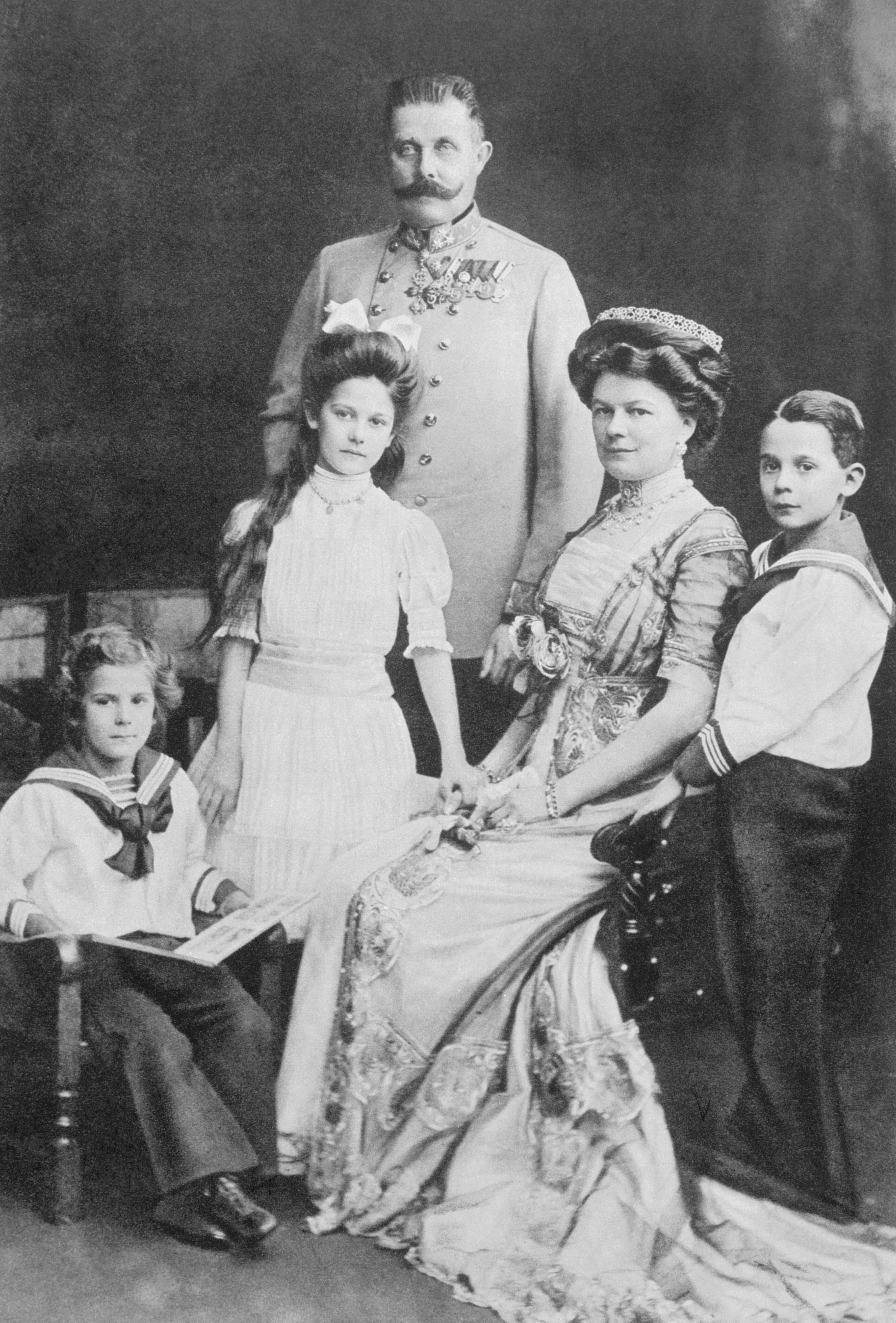Fürst Albrecht of Hohenberg died on 25 February 2021. He was ninety years-old.
 |
| Duke Max and Duchess Elisabeth of Hohenberg. |
Fürst Albrecht Philipp Leopold Josef Andreas Hubertus Maria of Hohenberg was born on 4 February 1931 at Artstetten as the third child and third son of Duke Maximilian of Hohenberg (1902-1962) and Countess Elisabeth von Waldburg zu Wolfegg und Waldsee (1904-1993). Duke Maximilian of Hohenberg, Georg Friedrich's father, was the second child and first son of Archduke Franz Ferdinand and his wife Sophie. Albrecht had two older brothers, Franz Ferdinand (1927-1977; married Princess Elisabeth of Luxembourg), and Georg (1929-2019; married Princess Eleonore von Auersperg-Breunner), and three younger siblings: Johannes (1933-2003), Peter (1936-2017), and Gerhard (1941-2019).
 |
| Fürst Albrecht, his niece Fürstin Anita, and his wife Fürstin Leontine. |
On 11 April 1962 at Vienna, Fürst Albrecht of Hohenberg married Countess Leontine von Cassis-Faraone (b.3 August 1933), the daughter of Count Leo August von Cassis-Faraone and Wilhelmina Fentener van Vlissingen. Albrecht and Leontine had four children: Fürstin Margarete (b.1963; married Archduke Josef Carl of Austria), Fürst Leo Johannes (b.1964; married Rosalind Roque Alcoforado), Fürstin Johanna (b.1966; married Count Andreas Henckel von Donnersmarck), and Fürstin Katharina (b.1969; married Carlos Manuel Méndez de Vigo y Löwenstein-Wertheim-Rosenberg).
 |
| Archduke Franz Ferdinand of Austria, Duchess Sophie of Hohenberg, and their four children. |
As we bid farewell to Furst Albrecht of Hohenberg, we are reminded of the significant contributions he made to the preservation of European history and culture. His life was marked by a deep commitment to his family's legacy and a passion for preserving the cultural heritage of the Habsburg monarchy. Through his tireless efforts, he ensured that the history of his family and the institutions they supported would be remembered for generations to come. His dedication to this cause is a testament to the enduring power of family and cultural traditions, and we are grateful for the impact he had on our understanding of this important period in European history.
As we reflect on the life of Furst Albrecht, we are reminded of the importance of preserving our cultural heritage for future generations. His work in this area has left a lasting impact on the world, and his legacy will continue to inspire and educate those who come after him. We are grateful for the opportunity to have learned from his life and to have been inspired by his dedication to his family and his community. May his memory serve as a reminder of the significance of preserving our cultural heritage and the importance of honoring the traditions that shape our understanding of ourselves and our place in the world.




No comments:
Post a Comment